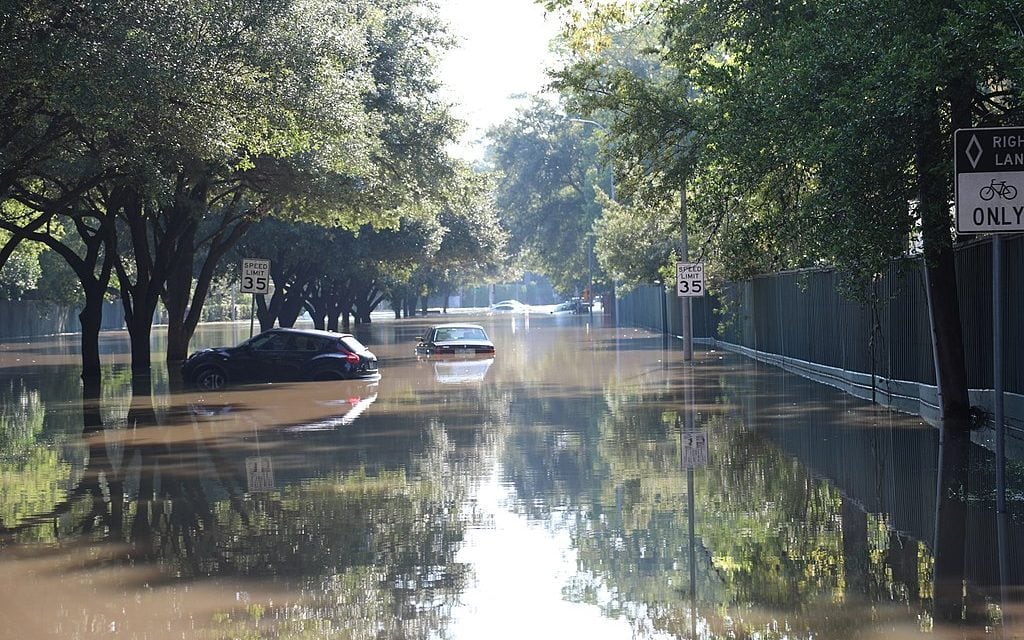Protecting your mental health before, during, and after a natural disaster.
On the morning of September 8, as hurricane Irma barreled toward Miami, Betsy Moise, and her family, decided they would not be moved by weather. Instead, Moise rose at 4 am that Friday morning to fill her car with gas and to buy food. She says the app, Gas Buddy, helped her find a location for fuel, but she found less luck at Walmart.
Born and raised in Miami, Moise felt that “leaving was not an option,” even in the face of an order to evacuate. The cost was an important issue, but Moise added that she was also, “not one to panic.”
Instead, she took the route of preparation. Thinking about her children’s safety first, she went on a mission to find gas and stock up on food.”
As the storm did its work, Moise and her family hunkered down at home, waiting for the crisis to pass. In the end, they were lucky—their family endured lost power and fallen trees, but their home and health remained intact.
Moise’s approach to “taking the storm seriously,” as she said, by stocking up on staples, boarding up windows, and moving inside is the next best thing to evacuation, but it cannot prepare you from one of the most lasting, and often invisible, effects of enduring a natural disaster—extreme stress. With 160-mile an hour winds and rising waters comes the terrifying weight of feeling helpless because everything that is dear to you is suddenly at risk and possibly watching friends and loved-ones devastated as well.
Even those who may think that they escape disasters unscathed, may find themselves grappling with mental health issues weeks, even years after the waters subside, the winds calm and homes are rebuilt.
A review of 200 studies on natural disasters found that 1 in 3 people who are directly exposed to a disaster show signs of Post-Traumatic Stress Disorder (PTSD) afterward. One-fourth experience some form of depression. And, the effects are most often more severe in women and children. Low-income residents are at even greater risk because of the difficulty of recovery without adequate financial and social resources. African American communities are also likely to be the last to receive aid, as we saw in the aftermath of Katrina in New Orleans, and now, according some reports, in Miami.
The impact can be so severe that many experts recommend psychological first-aid be provided along with other forms of relief in disaster situations. Safeguarding your mental health and that of your loved ones begins with activities that are just as critical as stocking up on food and water. If you take the right steps, disaster experts advise, you can reduce the stress that follows a crisis and learn how to recover:
- Practice: Whether you are alone or with your family, have a plan for what you will do if flood waters fill your living room or wind shears off the roof. Decide who is going to do what, have you your emergency “go bags” ready (don’t forget to add any needed prescription medications) and do a drill, several if possible. Experts explain that some people lose their natural ability to problem solve in the midst of a crisis, so work out the simple steps you plan to take before trouble strikes. Your walk-through may also save your life.
- Cultivate calm. If you have enough notice, practice calming yourself in stressful situations so that you have a go-to technique for a crisis. Try learning one of these simple, 10-minute meditation exercises and test them when stuck in traffic, for example, or a pre-disaster gas line. Working with children and teens to teach them similar techniques will also help ease their anxiety.
- Help someone. If possible, reach out to others and help. Comforting a child or supporting an elderly neighbor can help break you out of your own fearful space. Having a sense of purpose can reduce your anxiety.
- Recognize the signs of distress. Once a storm, hurricane, or other disaster subsides, it’s easy to take stock of cuts and bruises and property damage. Mental distress is harder to identify. Take stock of your feelings. The American Psychological Association cites these warning signs that you should seek the help of a mental health professional.
– Unpredictable, strong emotions – Experiencing sudden anger, anxiety, grief, or wild mood swings.
–Chest pains or the worsening of existing medical conditions.
– Rapid heartbeat, sweating, trouble sleeping, headaches, nausea, reliving the events over and over again.
-Trigger reactions – panic at the sound of a siren, a burning substance or loud noises that the horrific event may reoccur.
-Strained interpersonal relationships.
Coping and Healing
Just as a home and community need time to rebuild and recover, so do you. The good news is research shows that people do bounce back, as we are resilient, but the process requires support and patience. To protect your mental health:
- Give yourself time. Do not press yourself to get over the event quickly. It’s not natural. Acknowledge any losses and accept that you are facing a challenging time in your life. Mourn, before you attempt to move on.
- Reach out. Friends, family, neighbors and local resources can be a lifeline. Don’t withdraw. Be with the people who care about you. Let them lend their support.
- Talk about it. Or, write, draw or sing about it, and be sure to encourage children to do the same. Express your feelings and tell your story in any way that helps relieve tension and brings comfort.
- Remember your health. Once there’s an opportunity to establish activities of daily living, focus on healthy eating, keeping up with any medications or needed check-ups, and getting back to an exercise routine. It will aid your emotional, as well as your physical recovery.
- Heal your spirit. No matter your faith, prayer, meditation, and spiritual counseling may be of tremendous help in maintaining emotional stability. The effect is so powerful that Red Cross services include Spiritual Recovery Teams. Area churches, temples and mosques are also bound to have services you can attend.
- Treasure routine. Disaster recovery is no time to create greater upheaval. Do all that you can to return to familiar rituals or establish new ones. Get back to regular eating and sleeping habits. Return, if possible, to a favorite exercise class or hobby, if only for a night. Try to recover your sense of normalcy.
We will never have the power to control Mother Nature, but we can do our best to manage the unthinkable and heal.
Additional reporting by Sydney Davenport, a writer and reporter in Washington, D.C.








